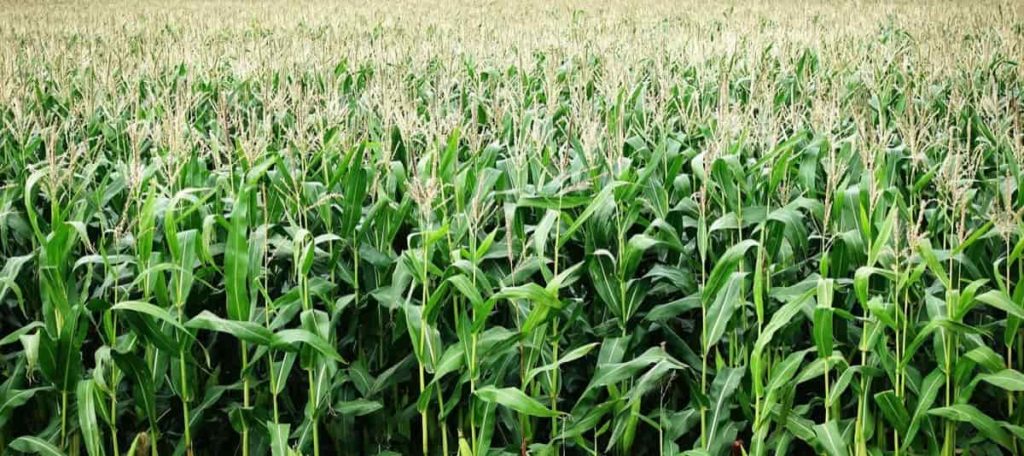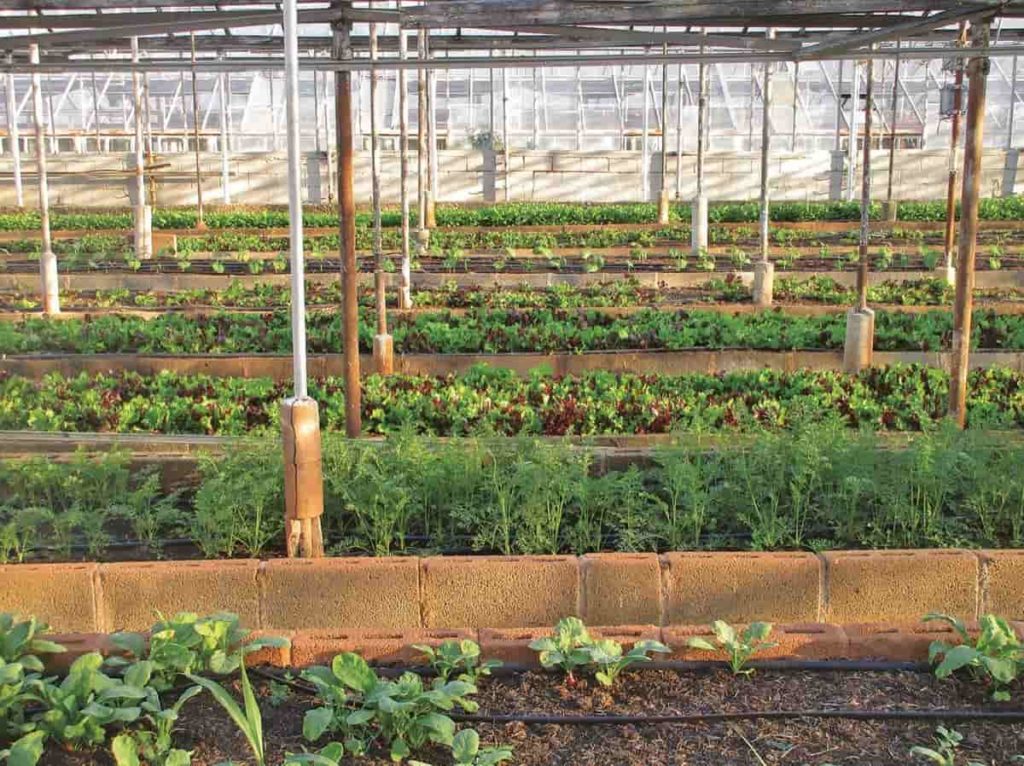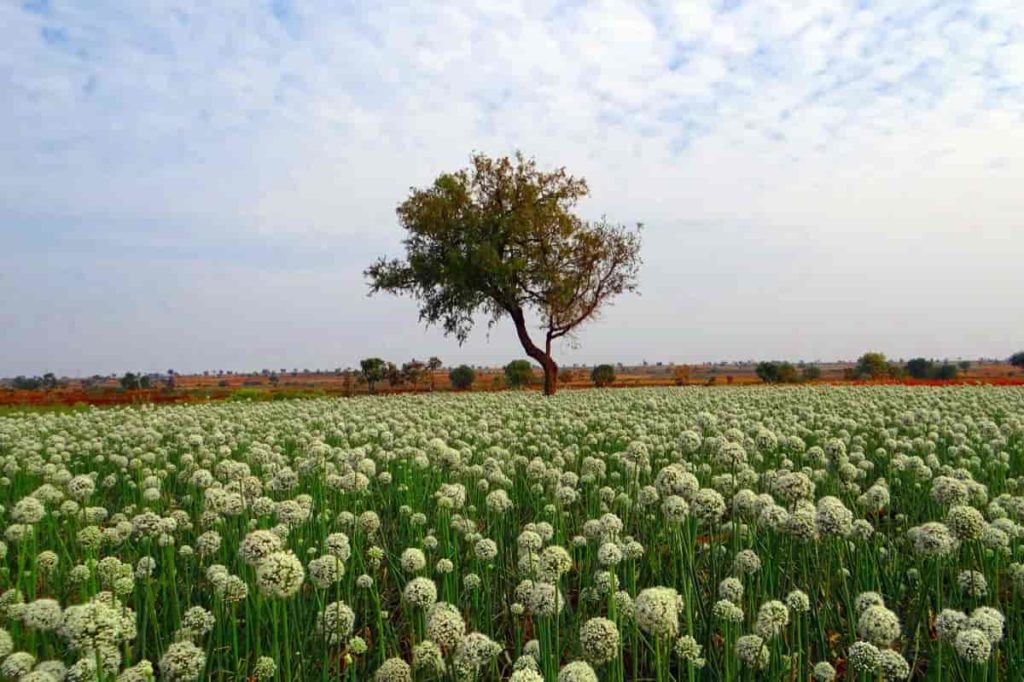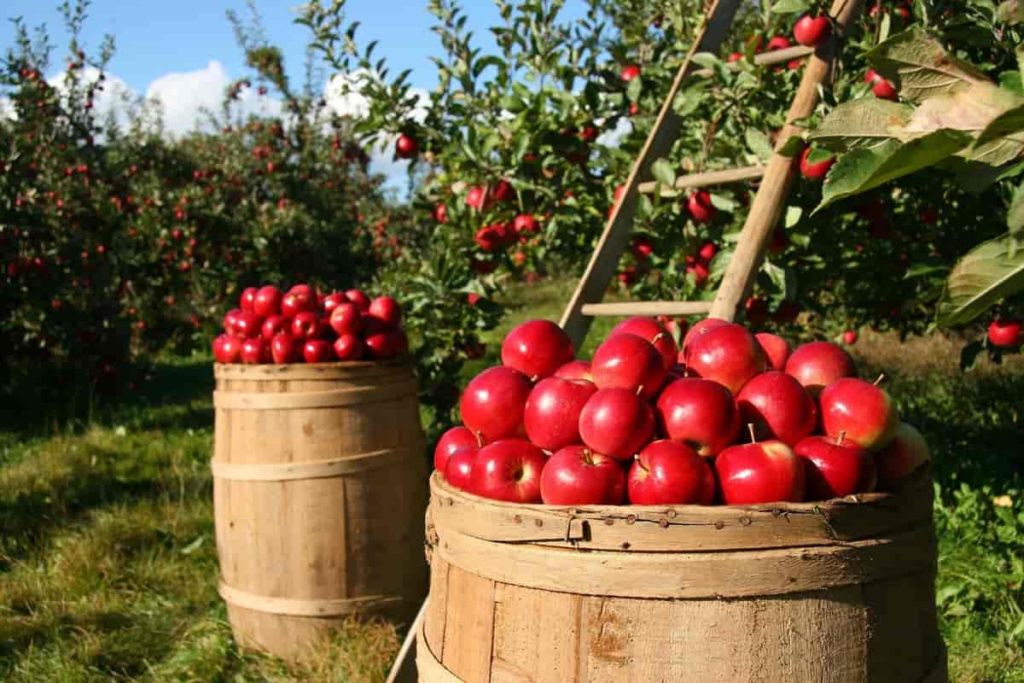Introduction to starting organic farming in Nagaland: Nagaland is a hilly state whose mountainous areas are rich in natural resources. Organic agriculture is a system of agricultural practices and it includes different techniques to get good crop yields without harming the natural environment or the people who live and work in it. In the current context, it incorporates agricultural methods without the use of artificial and plastic inputs. Organic farming has beneficial effects on the environment and ecosystems of the areas where it is practiced which greatly enhances the living standards of the people. Worldwide, organic food products are recognized for their positive effects on people’s health, without the negative effects of chemicals and pollutants that are included in food products that are not grown organically. Organic agricultural production has the beneficial effect of getting better prices in today’s world which will increase the income of rural farmers which will boost the state economy in the long run.
Organic farming helps maintain environmental health, maximizes the use of human natural resources, and ensures long-term sustainable production. Nagaland, which is known for its rich biodiversity and is slowly entering the organic farming market and efforts are being made to promote organic farming in the state. Nagaland has the potential to promote organic farming as farmers have been following the traditional system of agriculture since its inception without the use of external inputs. Organic farming covers about 13,000 hectares in 241 villages of Nagaland and 13,500 farmers are engaged in such cultivation. To promote organic farming in Nagaland, the state needs to adopt a mechanized or balanced approach and also focus on rural connectivity.
Guide on importance of starting organic farming in Nagaland and Aims, and crops cultivated under organic farming in Nagaland

Guide on Organic farming in Nagaland
Organic farming helps maintain environmental health, maximizes the use of human natural resources, and ensures long-term sustainable production. Nagaland, which is known for its rich biodiversity and is slowly entering the organic farming market and efforts are being made to promote organic farming in the state. Nagaland has the potential to promote organic farming as farmers from the very beginning have been following the traditional farming system without the use of external inputs. Naga farmers adopt an ancient traditional farming system called shifting farming. Current agricultural practices in Nagaland are organic by default, as the state and the region have not been affected by the wave of green revolution across India. Organic producers use natural processes and materials when designing farming systems – they contribute to soil, crop nutrition, pest and grass management, achievement of production goals, and conservation of biodiversity.
Organic farming in Nagaland has very promising opportunities and benefits as the state owns a large portion of virgin land and farmers and consumers across the state have a negative attitude towards the use of agrochemicals in agricultural production. In the state of Nagaland, the use of inorganic fertilizers and chemicals is almost non-existent, with most households raising cattle that provide adequate fertilizer. The state produces high-value crops such as pineapple, cardamom, ginger, juicy fruit, tea, coffee, which are accepted internationally. Traditional organic growers have started issuing certificates as “organic choice” so that farmers can get a premium price. In Nagaland, locally grown organic produce is a consumer preference and farmers get better market value.
Agriculture in Nagaland is by default organic but with urbanization, the tendency to commercialize our agricultural products is increasing which will ultimately demand higher yields. With this approach, the tendency to use chemicals to increase yields and to treat pests and diseases will take over the culture of organic farming. In this regard, the department has come up with a program in which farmers can continue their current practice of organic farming by training them with basic information which will help them in protecting their crops. At the same time, organic farming is considered as a measure to restore the sustainability of agricultural production and maintain environmental standards. Improved soil biological activity, such as those affected by organic farming, is also known to play a key role in controlling weeds, pests, and diseases. There is scientific evidence that organic farming can extract more carbon than conventional farming methods.
Choosing the right variety for seeds – Choosing the right variety for seed crops is a key to success. A farmer should balance the customer’s desires with the best-performing varieties on his farm. The use of disease-resistant hybrid varieties can be an important tool for a successful production. In addition to these precautions, organic farmers have other seed requirements;
- Certified organic seeds or seeds should be used when the variety is available as certified organic (as determined by checking with at least five reputable organic seed dealers).
- If the desired variety is not available, be sure to use “raw” or untreated seeds (i.e., cannot use unapproved fungicides or seed coatings).
- GMO seeds or seedlings are not permitted.
In case if you miss this: How To Buy Agricultural Land in Maharashtra

Adopting an integrated organic farming system model may prove to be the best way to save the environment. For those who want to practice better shifting farming with minimal impact on the ecosystem, issuing certificates as organic as agriculture can turn this ecologically harmful system into less harmful and poorer farmers can get higher prices than traditional products. Organic inputs used in organic and integrated farming include farmyard fertilizer (FYM), compost, poultry manure, biogas slurry, animal waste, crop residue management, oil cake, sewage and sludge, vermicompost, green manure crops, biofertilizers, Azotobacter, Azospirillum, BGA, PSM, VAM and various formulations of bio-pesticides. The concept of Nagaland is slowly shifting from an “organic by default” state to an “organic by design” state.
Important features of organic farming
- Maintaining organic matter levels, encouraging soil biological activity, and protecting long-term soil fertility through careful mechanical interventions.
- Indirectly supplying crop nutrients using relatively insoluble nutrient sources. And, which are made available to the plant by the action of soil microorganisms.
- Control of herbs, diseases, and pests mainly crop rotation, natural predators, diversity, relies on organic fertilizers, resistant varieties, and limited (preferably minimal) thermal, biological, and chemical interventions.
- Extensive management of livestock, their evolutionary adaptation, behavioral requirements, and taking full care of animal welfare issues in terms of nutrition, housing, health, breeding, and rearing.
- The impact of farming systems and careful attention to conservation of wildlife and natural habitats.
Organic farming is a whole food production management system that promotes the health of the agroecosystem. It prefers the use of off-farm inputs, that regional conditions require a locally adapted system. This is accomplished using agricultural, biological, and mechanical methods, as opposed to the use of synthetic materials, wherever possible, to accomplish a specific task within the system.
Thus, organic farming avoids or eliminates the use of synthetic chemical fertilizers, pesticides, growth regulators, livestock feed additives, etc., and eliminates them to a great extent and eliminates animal fertilizers, crop residues, non-farm organic depending on the use of waste, green manure, crop rotation, and biological pests to maintain soil productivity. The idea is to cultivate the soil instead of the crops to maintain the health of the soil, and it is a means of giving back to nature what has been taken from the soil.
Benefits for promoting organic farming in Nagaland
- Organic farming produces less soil and water pollution and saves more energy.
- Reduces pesticides and chemical residues in soil.
- Higher nutritional value than traditionally grown products. It tastes better than inorganic food.
- Promotes animal welfare.
- Improves the immune system.
- Protects natural flora, fauna, and habitats.
- The Nagaland people have adopted a system of agricultural practices without the use of external inputs. In the traditional agricultural system, the nutritional requirement of crops depends only on natural resources (biomass). The average cycling cycle is between 8-10 years. Due to the regeneration of biomass during the jhum cycle, the availability of plant nutrients in the soil is sufficient to sustain crop production economically without the use of chemicals and artificial inputs.
- Crops of the same species, in a specific area, are avoided for a long period which minimizes the presence of pests or insects. Then, this reduces the need for chemicals and pesticides.
- More than 70% of the total cultivated area in the state is under transfer where no chemical, synthetic, or plastic is used in the cultivation process.
- The use of artificial inputs in Nagaland in terms of NPK is estimated at only 1.5 kg per hectare. This is negligible by any standard.
In case if you miss this: Organic Farming In West Bengal, How To Start

Aims and objectives of organic farming in Nagaland
The following aims and objectives of the policy of adoption of organic farming in Nagaland will be;
- To produce healthy nutrients of high nutritional value.
- To protect and maintain the environment and ecosystem.
- Encouraging and enhancing biological systems within a farming system consisting of agricultural biology, soil, flora and fauna, plants, and animals. Promoting healthy water use and proper care and water resources and sustainable life in it.
- Maintaining and constructing good soil structure and fertility and promoting soil and waste conservation.
- To reduce all forms of pollution that may result from inorganic agricultural practices, non-agricultural and industrial wastes.
- Maintaining the genetic diversity of the agricultural system and its surroundings, including the conservation of plant, livestock, and wildlife habitats.
- Improving the quality of human life through healthy eating. It is formally cultivated through increasing prices of commodities to increase the income of the people and boost the economy of the people of the state.
- Promoting other sub-economic activities such as production and manufacture of bio-fertilizers, manures, bio-agents, and other inputs that will create industries and increase employment and livelihood of the people.
- To promote and develop the immense potential of the biodiversity of Nagaland through research which will lead to improvement in the quality of organic farming.
Strategies for organic farming in Nagaland
In the long run, the strategy will be to make Nagaland a fully organic state, with appropriate legislation, enactments, and regulatory measures in all parts of the state to ban the use of synthetics and chemicals in agricultural areas. Purchases and artificial agricultural inputs as well as seeds.
In the medium term, efforts will be made to limit the use of artificial inputs in farming methods to certain declared regions/areas such as Dimapur, Medziphema, Jalukie, and southern Angami areas where farmers first have been involved in intensive production programs with the use of synthetic inputs. With the use of artificial inputs. State departments will closely monitor and monitor such use of synthetics and chemicals in identified areas. In such areas, the government will try to keep farmers away from chemical and agricultural inputs and promote the use of organic alternatives.
In the immediate context, special crops in certain areas will be identified for commercial-scale cultivation and government assistance will be provided to certify them as organic produce. The Government shall develop special marketing programs required to market the organic products of the State in the domestic and international markets.
Production of organic fertilizers and bio-fertilizers will be promoted to increase the nutritional requirements of crops for commercial organic farming. To control pests and insects harmful to humans and agriculture, efforts will be made to find alternatives to chemical pesticides and insecticides that are currently used to control human and plant diseases.
In case if you miss this: Agriculture Land Registration Process In India

In the event of an outbreak of serious human epidemics and pest infestations that endanger human life or affect crop production, artificial inputs will be allowed under the supervision of technical departments. Such areas will be excluded from the organic production program for a prescribed period. In the long run, there will be an attempt to find alternative organic solutions to such human and agricultural problems.
The use of chemicals and disposal of industrial waste in river systems will be closely monitored and regulated, especially in urban areas and under the supervision of relevant departments. A system will be adopted to regulate the import and trial of readymade packaging material as well as to develop a proper packaging industry in the state.
Organic farming practices in Nagaland
Organic farming practices require the active participation of the people in Nagaland. The state shall undertake an extensive program to educate and create an awareness campaign on the forms and benefits of organic farming, as well as the long-term potential of regulatory measures to make the state a total organic state.
Commercial organic farming will require capacity building at various levels, such as between NGOs and farmers within the government, and the government will launch all such training programs with the necessary funding.
Production of organic manures and organic fertilizers will be promoted with adequate funding to increase the nutritional requirements of crops in the following ways;
1. Strengthen and upgrade existing bio-fertilizer laboratories for research and development.
2. Encourage farmers and agriculture through rigorous training and awareness campaigns to adopt the production of consumer and organic farming inputs.
3. To promote the production of organic manure and biofertilizer in the private sector through industrial activities in medium and small-scale industries or cottage and domestic industries through appropriate incentive schemes.
4. Adopt dryland farming methods to conserve soil moisture, soil nutrients, etc. through mulching of legumes along with important crops, and various soil and water conservation measures should be followed.
To find alternatives to chemical pesticides and insecticides used to control plant diseases with adequate funding to control pests and insects harmful to humans and agriculture. The below steps will be taken for controlling pests and diseases;
- Integrated pest management technologies will be adopted in the state.
- Strengthen existing laboratories for research and development of bio-agents.
- To promote the production of bio-agents by private entrepreneurs in the state with the necessary assistance provided under the State Industrial Policy-2000.
- Collaborate with firms and business houses to develop such technologies in the state.
Appropriate regulating bodies will be set up at the district level to monitor, implement and enforce state policies. District Agriculture and related committees will also be prepared to implement state policies. The State Government will facilitate the marketing process of waste organic products. With the help of more agencies like APFDA, NABARD. The involvement of private entities will be given top priority.
Appropriate regulatory bodies will be set up at the district level to monitor, implement and enforce state policies. District Agriculture and Allied Committees will also be prepared to implement state policies.
Crops cultivated under organic farming in Nagaland
The land is highly fertile and can produce high-quality agricultural, horticultural, and floriculture products through organic farming. Strategic initiatives in the areas of livestock, fisheries, and sericulture can result in resource production and the overall growth of the rural economy.
Sugarcane, Potato, Ginger, Naga Chilli, etc., are the major cash crops covering an area of about 5,510 hectares of land in Nagaland. The land is highly fertile and can produce high-quality agricultural, horticultural, and floriculture products through organic farming. Nagaland has followed the tradition of growing crops under organic conditions since ancient times. In the context of the globalization of agriculture, the market value of organic products is high. Generally, Nagaland is in a unique position to take advantage of this.
In case if you miss this: Digital Innovation In Agriculture And Farming

Nagaland has a very favorable agricultural climate for growing a wide range of fruits, vegetables, plantation crops, and flowers. Currently, the area under horticulture is only 5% of the total cultivated area. About 90% of the area under commercial vegetables is occupied by Potatoes, Tapioca, and Sweet Potato. The major spices grown in the state are Ginger, Chillies, and Turmeric. Meanwhile, it is estimated that the state imports 60% to 70% of its vegetable requirements. The systematic use of this environment for growing high-value crops will open up new avenues for improving the income and livelihood of farmers.
Challenges for promoting organic farming in Nagaland
The major challenges facing farmers in adopting organic farming in the state are as follows;
- India needs proper agricultural policy and guidance to promote organic farming for export as well as domestic use. Lack of proper policy or framework for organic farming.
- The remoteness of the region is a challenge as farmers do not have easy access to modern technology, transportation, markets, etc. There is the unavailability of organic matter on time and in required quantity as per the requirement of the farmers.
- The state lacks organic input as well as a marketing and distribution network for production.
- Lack of infrastructure facilities for organic farming in the state. There are very few agencies / NGOs that approve and promote organic farming.
- Most of the farmers in the state do not have awareness and knowledge about organic farming and its potential as compared to conventional farming. Awareness and consent from the farming community are required for the use of bio-fertilizers and bio-pesticides, organic manures, and various fertilizers.
- Lack of financial support discourages farmers from switching to traditional farming. The process of adopting regulation and certification seems cumbersome for small and backward farmers. Therefore, the government should provide financial support for adoption.
- The state has no definite pricing policy for organic produce. Thus, the lack of price advantage discourages farmers from adopting organic farming.
Funding for organic cultivation in Nagaland
The organic board will maintain such funds to achieve the objectives set out in the Organic Cultivation Policy. It will consist of funds received from the central government and other agencies, allocations from the state plan, and other sources available to the board. It can also get a loan from the state government. Approval from the state government of Nagaland for the development of organic farming in the state may be obtained from the central government or any other means. Funding support for the implementation of the various policy measures outlined will be provided from program funds of various relevant departments of the state, including state subsidies and institutional financing from financial agencies and private investors.
Role of government schemes and certification agencies for organic farming in Nagaland
The government of Nagaland has launched several programs to strengthen the organic farming system in Nagaland with the increasing demand for organic production. Organic Nagaland Promotion Schemes have been launched under the National Project on Organic Farming (NPOF) under the Ministry of Agriculture, Government of India. The Ministry of Commerce also launched the National Organic Program in April 2000. The Agricultural and Processed Food Products Export Development Authority (APEDA) is implementing the National Program for Organic Production (NPOP) in Nagaland.
Under the NPOP, documents such as accreditation standards are prepared and approved by the National Steering Committee for recognition by national standards, inspection, and certification agencies. Organic farms must certify that the product is completely organic to satisfy consumers. In India, APEDA, a top organization under the Ministry of Commerce, has developed a National Program for Organic Production and a logo, ‘India Organic’. APEDA has also recognized several organizations for certifying organic farms. Some national certifiers have been engaged in certification activities in Nagaland.
In case if you miss this: How To Buy Agricultural Land In Kerala

MOVCD-NER – Mission Organic Value Chain Development for North East Region (MOVCD-NER) in Nagaland, the scheme was launched during 2015-16 as a nodal agency with the Department of Agriculture. The main objectives of the scheme are:
- To develop crop commodity-specific organic value chain and address gaps in organic crop production, organic livestock management, the necessary infrastructure for organic agricultural products marketing, with technical and financial support.
- To enable farmers to transform traditional farming/employment farming systems into specialized crops into high-value commercial organic enterprises with end-to-end facilities for production, processing, storage, and marketing.
- In the domestic and export markets, facilitate partnerships between farmers and organic businesses like local entities and/or farmer producer companies (FPCs).
- The entire value for developing certified organic produce in value chain mode to engage farmers with consumers and start input, seed, certification, facility creation, collection, storage, processing, marketing, and branding building initiations.
Marketing of organic products in Nagaland
Organic vegetables fetch a premium price of about 10-50% higher than conventional products. The market for organic products is growing faster than conventional products. The priority of exporting organic vegetables provides a huge scope for a state like Nagaland, which has developed the art of growing crops organically since ancient times. Organic production was generally lower than conventional production. Furthermore, the high cost of certification has always been a concern for small and marginal farmers.
This problem continues because of unawareness among the poor farmers, the inaccessibility of the extended staff to the remote corners of this mountainous state, the lack of social media in the local languages, the lack of large-scale production, the poor transport capacity, the lack of business ability and so on. Recently in Nagaland, some organic products like King Chilli, Squash, and Passion Fruit, etc., are sold in the neighboring states and even in the international market.
Creating awareness and disseminating knowledge about organic farming through field demonstrations, social media, programs, etc., are the peak requirements of the time. However, the verification process needs to be improved. The Nagaland government has reaffirmed its commitment to work for organic policies. Under NPOF’s Service Provider Scheme, more than 300 farmer groups have been formed across the country to spread organic farming. Various other NPOF schemes run by state governments and many non-governmental organizations (NGOs) have also contributed significantly to the development of organic farming.
- Types of Pesticides Used in Agriculture: A Beginner’s Guide
- Economical Aquaculture: A Guide to Low-Budget Fish Farming
- 15 Common Planting Errors That Can Doom Your Fruit Trees
- How to Make Houseplants Bushy: Effective Tips and Ideas
- Innovative Strategies for Boosting Coconut Pollination and Yield
- Pollination Strategies for Maximum Pumpkin Yield
- The Complete Guide to Chicken Fattening: Strategies for Maximum Growth
- Natural Solutions for Tulip Problems: 100% Effective Remedies for Leaf and Bulb-Related Issues
- Revolutionizing Citrus Preservation: Towards a Healthier, Greener Future
- Natural Solutions for Peony Leaf and Flower Problems: 100% Effective Remedies
- Maximizing Profits with Avocado Contract Farming in India: A Comprehensive Guide
- Natural Solutions for Hydrangea Problems: 100% Effective Remedies for Leaf and Flowers
- The Ultimate Guide to Choosing the Perfect Foliage Friend: Bringing Life Indoors
- From Sunlight to Sustainability: 15 Ways to Use Solar Technology in Agriculture
- The Ultimate Guide to Dong Tao Chicken: Exploring from History to Raising
- The Eco-Friendly Makeover: How to Convert Your Unused Swimming Pool into a Fish Pond
- Mastering the Art of Delaware Chicken Farming: Essentials for Healthy Backyard Flocks
- 20 Best Homemade Fertilizers for Money Plant: DIY Recipes and Application Methods
- How to Craft a Comprehensive Free-Range Chicken Farming Business Plan
- Brighten Your Flock: Raising Easter Egger Chickens for Beauty and Bounty
- How to Optimize Your Poultry Egg Farm Business Plan with These Strategies
- Subsidy for Spirulina Cultivation: How Indian Government Schemes Encouraging Spirulina Farmers
- Ultimate Guide to Raising Dominique Chickens: Breeding, Feeding, Egg-Production, and Care
- Mastering the Art of Raising Jersey Giant Chickens: Care, Feeding, and More
- Ultimate Guide to Raising Legbar Chickens: Breeding, Farming Practices, Diet, Egg-Production
- How to Raise Welsummer Chickens: A Comprehensive Guide for Beginners
- How to Protect Indoor Plants in Winter: A Comprehensive Guide
- Ultimate Guide to Grow Bag Gardening: Tips, Tricks, and Planting Ideas for Urban Gardeners
- Guide to Lotus Cultivation: How to Propagate, Plant, Grow, Care, Cost, and Profit
- Agriculture Drone Subsidy Scheme: Government Kisan Subsidy, License, and How to Apply Online
- Ultimate Guide to Raising Araucana Chickens: Breed Profile, Farming Economics, Diet, and Care
- Bringing Hydroponics to Classroom: Importance, Benefits of Learning for School Students
- Ultimate Guide to Raising Polish Chickens: Breed Profile, Farming Economics, Diet, and Care
- Ultimate Guide to Raising Australorp Chickens: Profile, Farming Economics, Egg Production, Diet, and Care
- Silkie Chicken Farming: Raising Practices, Varieties, Egg Production, Diet, and Care
- Sussex Chicken Farming: Raising Practices, Varieties, Egg Production, Diet and Care
do you have such programs of support in the various counties especially in the west
Excellent article.
Will like to know more about available agricultural land and how locals can buy agricultural land.